Dashnor Kaloçi
Memorie.al publishes the letter of 1949 where the President of the High Military Court Bilbil Klosi, informs the secretariat of the Central Committee of the ALP about all the sentences he had given up to that time, including the execution of 14 mirditors in revenge for the murder of Bardhok Biba, where he says, among other things: “No death sentence was approved without the decision of the Party, no death sentence was issued without the consent of the Party. In any case, I talked to Enver, Tuk, Hysni, Mehmet, etc. and I got their approval “.
follows from the previous norm
The event of August 7, 1949, where the First Secretary of the Mirdita Party Committee and at the same time the deputy of that province in the People’s Assembly, Bardhok Biba, was killed, as well as the revenge of the communist regime of Tirana for what happened as revenge for the murder of Bardhok executed 14 men and imprisoned and exiled him with tens of hundreds of innocent Mirditors, which from that time to the present day has aroused numerous discussions. Where are the big questions about the murder of Bardhok Biba, as well as who was the senior leader who decided and ordered the brutal revenge against the “reactionary Mirdita”?! Whereas from the distant year 1949 when that event took place and until today, it has been attributed to Mehmet Shehu, the person who personally led the punitive operation in Mirdita, an archival document recently discovered, he rejects that version.
This is made clear by the information of Bilbil Klosi, former President of the Supreme Military Court in the years 1945-1949 (later Minister of Justice and Secretary of the Presidency of the Presidium of the People’s Assembly), which bears the date October 21, 1949 and sent to the secretariat of the Central Committee of the Communist Party of Albania and to Enver Hoxha himself. Among other things, in that report-information, Bilbil Klosi writes with his hand that: “I tried in Rrëshen regarding the murder of comrade Bardhok Biba: I called Comrade Commander and directed him to strike”.
So, the man who gave the instructions, or more precisely ordered the execution of 14 men in Mirdita, was Enver Hoxha himself. The document in question with the report-information of the former President of the High Military Court of that time, we are publishing in full and without any cuts, also for the fact that it sheds light and illuminates the names of some of the perpetrators of many executions those years (1945-1949), where Bilbil Klosi describes them not only with names, but also explains the debates or orders he received from them regarding the sentences he gave, mainly those with death.
For which he says: “In no case, we have not given any death sentence without consulting or asking the Party”?! So, to put it more clearly; this document “reveals” the main leaders of the Albanian Communist Party of that time, such as: Enver, Mehmeti, Hysni Kapon, Tuk Jakova, Bedri Spahiu and others, who appeared on the courts, orienting or ordering them in the sentences they gave.
WHISTLE LETTER TO THE CENTRAL COMMITTEE AND ENVER
For the fellow commander
S E K R E T A R J A T I T
Comrade Tuku communicated to me my transfer for my errors from the Military Court to the Ministry of Foreign Affairs. We talked to him about these mistakes that had not been pointed out to me; but singing Comrade Mehmet’s speech in the Voice of the People, I cannot stay without formulating in writing my observations about the mistakes that comrade Tuk made in appearing to me.
- Judicial Independence: When I was notified of my appointment as President of the High Military Court, Comrade Commander and Comrade Mehmet asked me the question: How do you understand the independence of the Court and its relationship with the Party?
I have said that the Court judges according to the law in cooperation and under the directives and control of the Party.
In no single case in my work have I severed ties with the Party and acted differently.
Here are the judgments I have judged myself: (High Court)
Trotskyists Hysen Sejdini and others: I consulted with Comrade Tuk and Comrade Bedri about the blow that should have been done.
I judged Niko Opari: I consulted with Comrade Hysni and Comrade Commander.
I tried in Rrëshen regarding the murder of comrade Bardhok Biba: I called Comrade Commander and directed him to strike.
The High Court in Milot has ruled. We gave a written report to Comrade Hysni and he told us how we should hit.
He tried two majors for beatings (Major Enver Dajçi and Sulo Kozelin) I asked comrade Hysni about the sentence.
I sentenced a driver to death: I talked to Comrade Tuku and although the opinion of the Jurists was that he could not be legally sentenced to death, by interpreting the Law in a revolutionary way, I carried out the order of the Party.
I tried Kadri Hoxha: I asked Comrade Hysni.
He left to go to Vlora, I asked for instructions from Comrade Commander: his departure was suspended due to the transfer.
These are the Trials made by the High Court, because of their importance.
In the second instance (ie when we saw the decisions given by the Garrison Court why the convict or prosecutor complained), I consulted with Comrade Hysni, Comrade Commander, and once with Comrade Tuk, whenever it was the case that a death sentence.
No death sentence was approved without the decision of the Party; no death sentence was issued without the consent of the Party.
Even when I found it difficult to decide in the second instance on a trial, with smaller sentences, I asked the Party, e.g. I reported to the Party on the processes of a group in Shijak, processes confused with many legal errors.
I have not asked the Party about the numerous and insignificant cases which I thought were not to be brought before the Party and which is not a practice nor has it been asked of me by the Party. Cases of ordinary sentences, with 1, 2, 3, 4, 5, 7, 10, other years of imprisonment.
Even when I released as a High Court any person (this has rarely happened) I was informed of his dangerousness; eg Before deciding on the release of Dhimosten Malos, who was sentenced to 10 years in prison by the Tirana Garrison Court, I asked Comrade Mehmet Shehu.
From all this it follows that in practice I have not for any moment severed ties and consultations with the Party, nor have I ever thought, nor do I ever think, that not the Courts, but any other sector, can walk straight without the hand of the Party . This could have been thought of by a young and ideologically low member, but not me a 1942 member of the Party. As strong as the Bourgeois Culture of the school I conducted, the internship at the party and the struggle I waged, have taught me as much as I know this elementary thing: The Party above all and the Party everywhere.
As I acted, so I thought and my thoughts, on all the problems and affairs of the Court I presented to the secretary in two summaries almost identical summarized on 5 and 15 July 1949, i.e. three and a half months, after we started working effectively./Memorie.al
Continues tomorrow




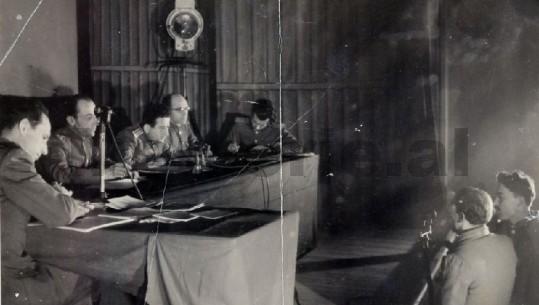
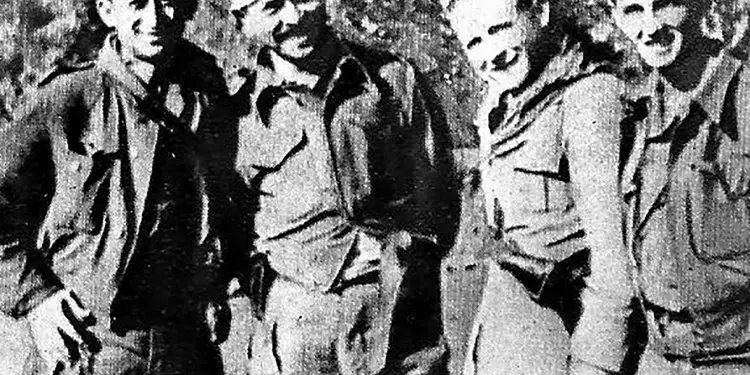
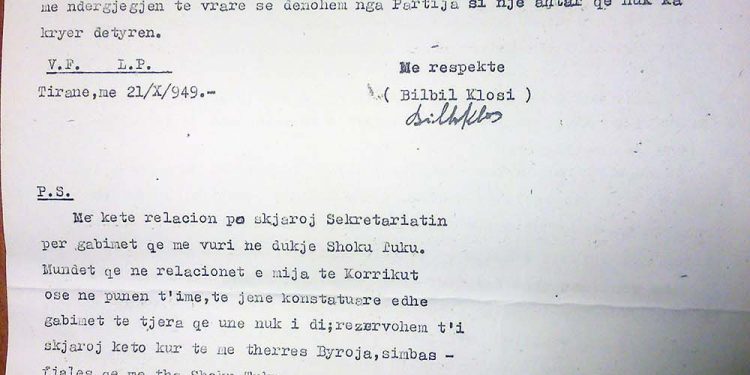
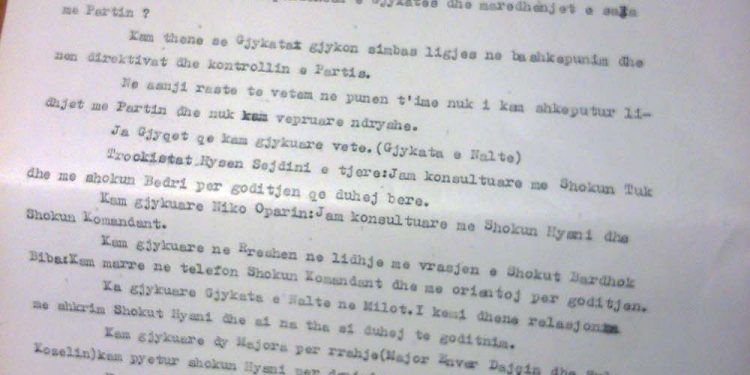
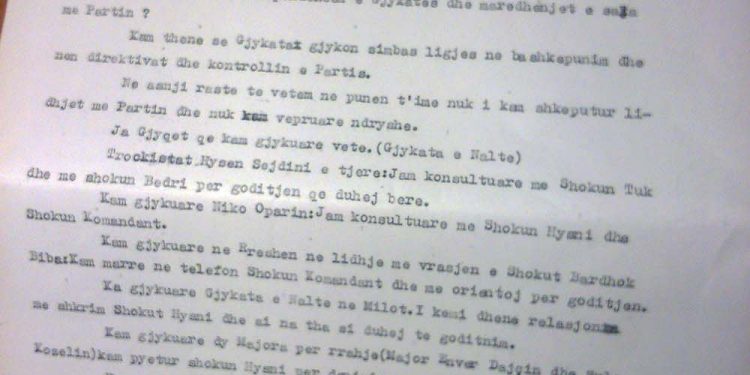
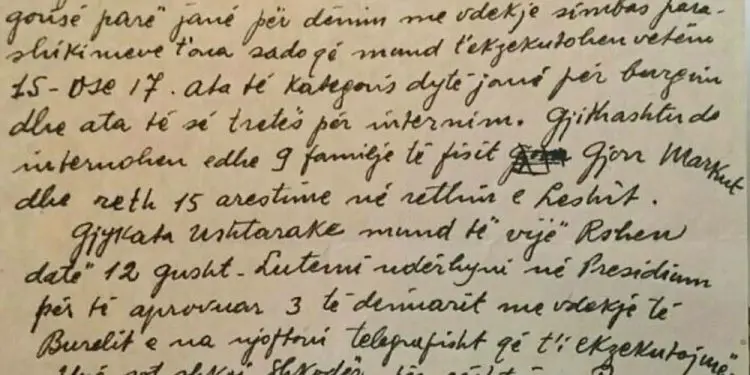
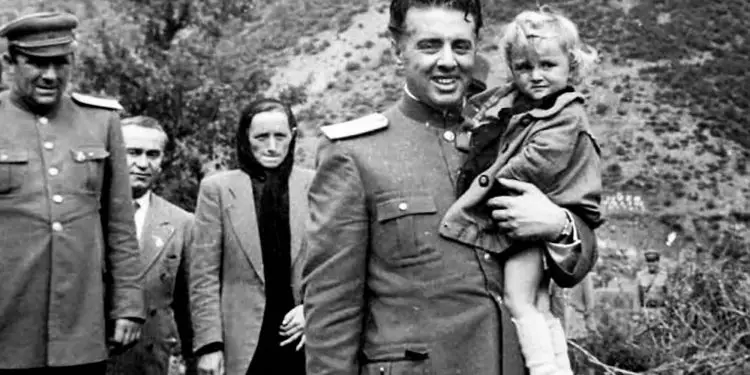
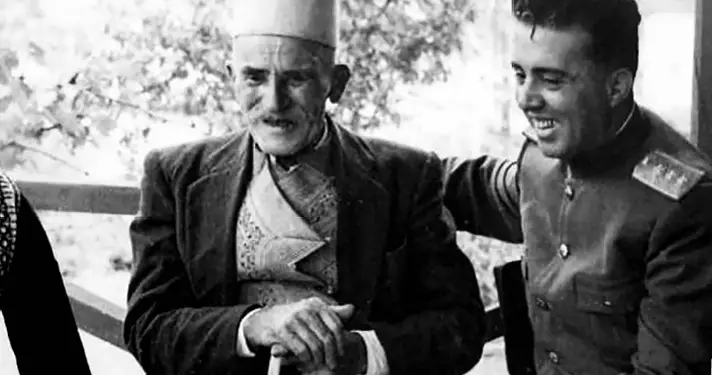
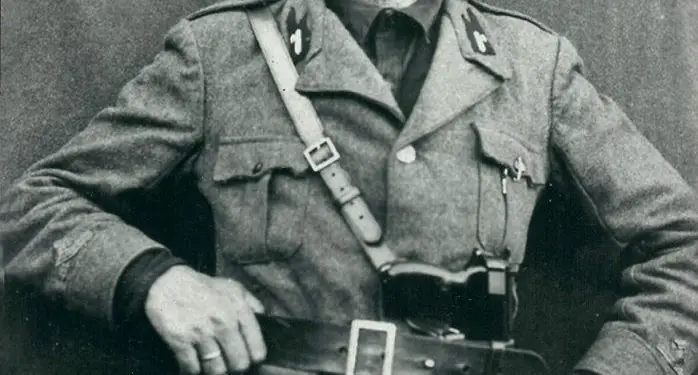
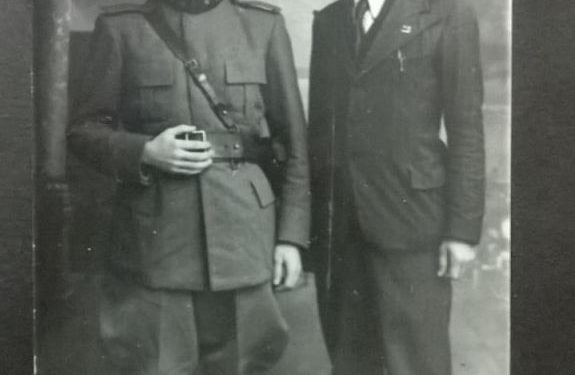
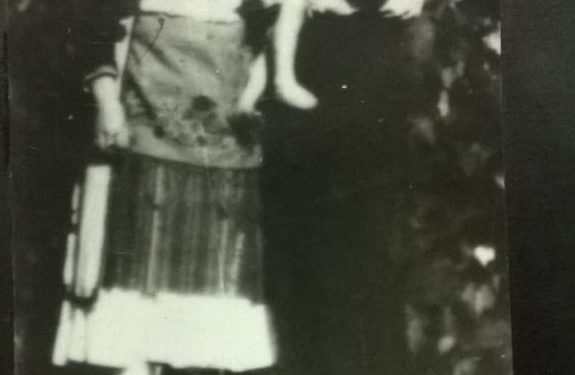
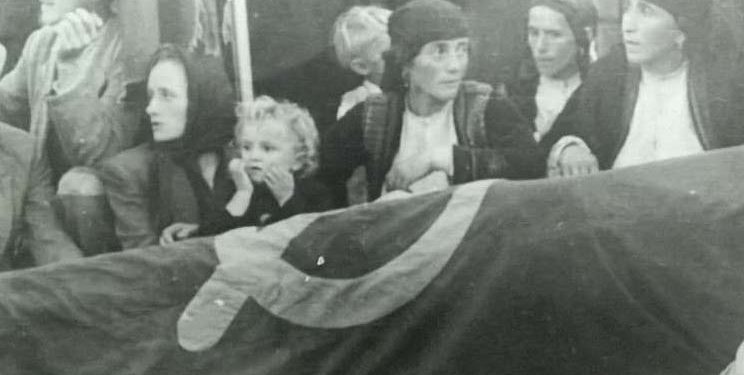



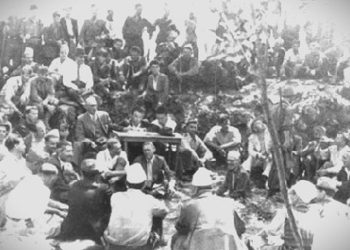
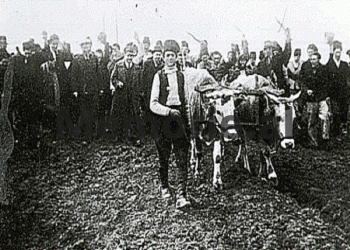
![“They have given her [the permission], but if possible, they should revoke it, as I believe it shouldn’t have been granted. I don’t know what she’s up to now…” / Enver Hoxha’s letter uncovered regarding a martyr’s mother seeking to visit Turkey.](https://memorie.al/wp-content/uploads/2026/01/Dok-1-350x250.jpg)
